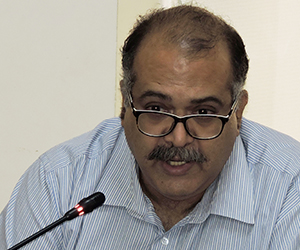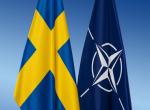A year or so before the US-Pakistan relations went horribly wrong in 2011 – the Osama raid, bombing of 26 Pakistani soldiers, the Raymond Davis affair – the two sides had made an effort to have a conversation on the possibility of a civilian nuclear deal of the type that US and India had entered into. The ‘Strategic Dialogue’ on a range of issues between the US and Pakistan did not however turn out to be either a dialogue or strategic. From around late 2012, both sides made efforts to bring their relations back on the rails and restarted a somewhat watered down Strategic Dialogue. But despite the hype and hoopla, mostly by the Pakistanis for whom the word ‘strategic’ has almost become a psychological disorder, there isn’t as yet anything much to show in terms of tangibles in the US-Pak relationship. Now, if calculated leaks in the US media are to be believed, things could be changing, what with the Americans ready to offer a civilian nuke deal to Pakistan, albeit with riders and redlines.
The first hints of such a deal came in a paper tilted “A Normal Nuclear Pakistan” published jointly by the Stimson Centre (which was in the forefront of opposing the nuclear deal with India) and the Carnegie Endowment for International Peace. According to this report, “the international community is unlikely to accommodate Pakistan's desire to enter the nuclear mainstream without corresponding steps by Pakistan to align aspects of its nuclear policy and practices closer with international norms”. For this the report proposed that Pakistan needs to do the following five things: shift declaratory from ‘full spectrum’ to ‘strategic’ deterrence; commit to a recessed deterrence posture and limit production of short-range delivery vehicles and tactical nuclear weapons; lift its veto on the FMCT negotiations and reduce or stop fissile material production; separate civilian and military nuclear facilities; sign CTBT without waiting for India. The authors acknowledge that this is a pretty tall order because it would require “difficult and fundamental adjustments to thinking about nuclear weapons and Pakistan's deeply ingrained habits of transactional bargaining.
This report might have been written off as just another intellectual exercise if it were not for an article by the quintessential Washington insider, David Ignatius, in which he says that the Obama administration was exploring a “diplomatic blockbuster” by offering Pakistan a civilian nuclear deal but with “new limits and controls on Pakistan's nuclear weapons and delivery systems”. According to Ignatius, Pakistan has been asked to restrict its nuclear weapons programme to levels that provide it with deterrence against India, which is exactly what the Stimson-Carnegie report has proposed. This would pave the way for Pakistan's entry into the Nuclear Suppliers Group (NSG). But Ignatius admits that negotiations will be “slow and difficult” and the possibility of Pakistan accepting limitations on its nuclear programme remain unclear. After a similar report in the New York Times by yet another insider, David Sanger, it is now quite clear that a nuke deal with the Pakistanis is firmly on the table and behind the scenes negotiations are being led by a top official, Dr Peter Lavoy, who is something of an expert on India and Pakistan. The question, however, is will such a deal sell, not just with the Pakistani's but also within the US system and the rest of international community?
The prospects for such a deal appear very iffy. The Americans are probably under no illusion about the Pakistanis accepting restraints and limitations on their nuclear programme. Nor are the Pakistanis so desperate for a civilian nuclear deal to cap their programme and/or to limit it to India. Ironically, instead of the nukes protecting Pakistan, for many years now it has been the other way round. But more interestingly, the nuclear programme, along with Islamist terrorism, are Pakistan's two biggest cash cows which are leveraged to extort money from rest of the world. India is a bit of a sideshow in this equation and is at best an excuse. Quite simply, if Pakistan didn’t have nukes, or if they had been a pillar of stability in the region and were not seen as being an Islamised nuclear weapons state in danger of going under, what would they sell to the world as their USP? In short, Pakistan has been unlocking the value of its nuisance value.
This is precisely the reason why even though both the US and Pakistan are talking of a nuclear deal, these talks will be dripping with insincerity on both sides. For the Americans, the motivations are two or three: one, they hope that Pakistan will become more reasonable, even amenable, to US demands, entreaties and pleadings to settle Afghanistan in a way that the US doesn’t end up leaving a right royal mess behind. In other words, imperial hubris tempered by imperial desperation seem to be behind this offer so that the Americans are not dragged back into the mess they are leaving behind. But how a deal like this will make Pakistan behave when all other ploys, including tens of billions of dollars haven’t, remains unexplained; Two, if Afghanistan goes wrong, as it is, then it will raise serious questions about the so-called legacy issues of the Obama presidency; Three, the US hopes that by engaging Pakistan on the nuke deal, it will regain a lot of its influence which has been seriously whittled down in Pakistan.
It is of course another matter that the Americans must know that getting this deal through is almost a mission impossible. The talks will be long winded, torturous and extremely difficult and it is highly unlikely that there will be any outcome during the tenure of this administration. In all likelihood, therefore, the idea is to engage the Pakistanis over the next two odd years, get them to deliver on Afghanistan, legacy issues etc. At the end of this period, Obama will have made way for his successor. Pakistan, as well as the deal, will be someone else’s headache and responsibility. Even if talks did eventually succeed, and a middle way is found between American wishes and Pakistani imperatives, the US administration will have to sell this to Congress. After the Iran deal, this will be well near impossible, even more so because not just the Republicans but also a large number of Democrats will oppose it. If the Ayatollahs of proliferation couldn’t countenance a deal with India, how will they respond to a shameless proliferator, a rabidly Islamist entity which is perceived to be spiralling out of control, or at least is very fragile, getting a civilian nuclear deal. And then there is the whole issue of selling it to the rest of the world.
For its part, Pakistan too is not getting into these talks with any degree of seriousness, forget about sincerity. Their objective is to squeeze whatever they can out of the talks. By engaging the Americans on nuclear issues, the Pakistanis will try to project itself as a responsible nuclear weapons state and use it for diplomatic rehabilitation. They know they will not take a deal at the terms the Americans are offering, but at the very least they will get a foot in into the nuclear club. Perhaps at a later date, they may even get an entry without having the make the compromise the Americans are demanding of them. In the meantime, they will use these talks to get whatever money, aid and trade deals they can from the Americans.
Published Date: 23rd October 2015, Image Source: http://zeenews.india.com
(Disclaimer: The views and opinions expressed in this article are those of the author and do not necessarily reflect the official policy or position of the Vivekananda International Foundation)










Post new comment